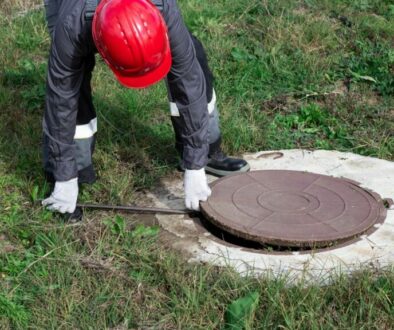How To Become A Bail Bondsman?
If you are interested in becoming a bail bondsman, you should know that this profession requires specific skills and training. A bail bondsman makes it possible for people accused of crimes to be released from jail while they wait for their trial. This is a crucial role in the criminal justice system, and it is one that comes with many responsibilities. In this article, we will explore the steps you need to follow to become a bail bondsman, the necessary skills you need to succeed in this profession, and the benefits you can expect to enjoy.
Steps To Becoming A Bail Bondsman
Becoming a bail bondsman can be a rewarding career path for those interested in the criminal justice system. Not only can you help people in need, but you can also make a good living in the process. Here are some additional steps and information to consider when pursuing a career as a bail bondsman.
- Gain Experience and Obtain a License
After researching your state’s requirements for obtaining a license, you may find that some states require a certain amount of experience in the criminal justice field before becoming licensed. This experience can be gained through working as a paralegal, law enforcement officer, or in a related field. It’s important to check your state’s requirements and gain any necessary experience before pursuing a license.
Additionally, some states may require a background check and fingerprinting before granting a license. This is to ensure that you have no criminal history that could affect your ability to work as a bail bondsman. - Establish a Bail Bond Agency
Once you have passed the licensing exam and obtained your license, you will need to establish a bail bond agency. This can be done by either starting your own agency or joining an existing one. Starting your own agency will require more financial resources, but it will also allow you to have more control over your business. Joining an existing agency may provide you with more support and resources, but you will have less control over your business.
- Establish Relationships
Establishing relationships with local attorneys, courts, and law enforcement officers is crucial to the success of your business. These relationships can help you gain clients and navigate the legal system. It’s important to be professional and ethical in your interactions with these individuals, as your reputation can greatly affect your business.
- Stay Up-to-Date with State Laws and Regulations
Finally, it’s important to stay up-to-date with any changes to state laws or regulations that may affect your license. This can be done by attending continuing education courses or joining a professional organization for bail bondsmen.
Becoming a bail bondsman requires dedication, hard work, and a commitment to helping others. By following the necessary steps and staying informed, you can build a successful career in this rewarding field.
Skills Needed For Becoming A Bail Bondsman
Being a bail bondsman requires a unique set of skills. You will need to be detail-oriented and organized, as you will be responsible for managing large amounts of paperwork and financial transactions. This includes keeping track of court dates, payment schedules, and ensuring that all necessary paperwork is filed correctly and on time.
In addition to being organized, you will also need to be able to communicate effectively with clients, attorneys, and law enforcement officers. This means being able to explain the bail bonding process in terms that your clients can understand, as well as being able to negotiate with attorneys and law enforcement officers on behalf of your clients.
Another critical skill for being a successful bail bondsman is having a thorough understanding of state laws and regulations that govern the bail bonding process. Clients will look to you for guidance, so it’s important that you can provide accurate information and answer their questions confidently. You should be familiar with the different types of bonds available, such as cash bonds, surety bonds, and property bonds, and be able to explain the pros and cons of each option.
Furthermore, you should be able to multitask and work well under pressure. The bail bonding process can be complex and time-sensitive, so it’s important that you can handle multiple clients and cases at once, while still ensuring that everything is done correctly and on time.
Lastly, being a bail bondsman requires a certain level of empathy and compassion. Many of your clients will be going through a difficult time, and it’s important that you can provide them with emotional support and guidance as well as legal assistance. You should be able to listen to your clients’ concerns and fears, and be able to offer them reassurance and advice.
Becoming a successful bail bondsman requires a combination of organizational, communication, legal, and interpersonal skills. If you are detail-oriented, organized, and able to handle pressure, while also being able to communicate effectively and provide emotional support to your clients, then you may have what it takes to succeed in this challenging but rewarding field.
What is a Bail Bondsman?
While the concept of bail bonding may seem straightforward, it is important to understand the legal process behind it. When a person is arrested, they are taken to jail and booked. This includes taking their personal information, fingerprints, and a mugshot. The individual will then have a bail hearing, where a judge will determine the amount of bail needed for their release.
If the individual cannot afford to pay the full bail amount, they can turn to a bail bondsman for help. The bondsman will typically require collateral, such as property or a vehicle, to secure the bond. If the individual fails to appear in court, the bondsman can use the collateral to cover the bail amount.
It is important to note that while a bail bondsman can help an individual get out of jail, they are not responsible for the individual’s actions. If the individual fails to appear in court, the bondsman will be responsible for finding and returning the individual to custody.
Additionally, not all states allow for commercial bail bonding. In some states, such as Illinois and Oregon, commercial bail bonding is illegal. Instead, these states rely on other methods, such as pretrial services or release on recognizance, to ensure an individual’s appearance in court.
Overall, while the services of a bail bondsman may be necessary for some individuals, it is important to fully understand the legal process and potential risks involved.
The Benefits of Working as A Bail Bondsman
Working as a bail bondsman can be a lucrative and rewarding career. Bail bondsmen have the opportunity to help people who are in difficult situations, and they play an important role in the criminal justice system. Additionally, bail bondsmen have the freedom to set their own schedules and can enjoy the flexibility of being self-employed.
One of the most rewarding aspects of being a bail bondsman is the ability to help people who are in difficult situations. When someone is arrested and placed in jail, their loved ones may not have the financial means to post bail. This is where the bail bondsman comes in. By posting bail on behalf of the defendant, the bondsman is able to help the defendant get out of jail and return to their family and job while they await trial.
Furthermore, bail bondsmen play an important role in the criminal justice system. By ensuring that defendants show up for their court dates, bondsmen help to keep the system running smoothly. They also help to alleviate overcrowding in jails, as defendants who are out on bail are not taking up valuable space that could be used for more dangerous criminals.
Another benefit of working as a bail bondsman is the flexibility of being self-employed. Unlike many other professions, bondsmen have the ability to set their own schedules and work as much or as little as they want. This can be particularly appealing for those who have family obligations or other commitments that make a traditional 9-to-5 job difficult.
However, working as a bail bondsman also comes with its challenges. The job requires long hours, and bondsmen must be available to their clients 24/7. This means that they may have to work nights, weekends, and holidays, and must always be ready to respond to a client’s needs.
Additionally, the job can be high-stress, as bondsmen must be able to handle difficult clients and manage their finances carefully. They must also be knowledgeable about the criminal justice system and the laws governing bail bonds in their state.
Becoming a bail bondsman is a challenging but rewarding profession. By following the steps necessary to obtain a license, developing the necessary skills, and establishing connections within the local criminal justice system, you can build a successful career as a bail bondsman. With dedication and hard work, you can help to make a difference in the lives of those who are facing difficult times, while also enjoying the benefits of being self-employed.




